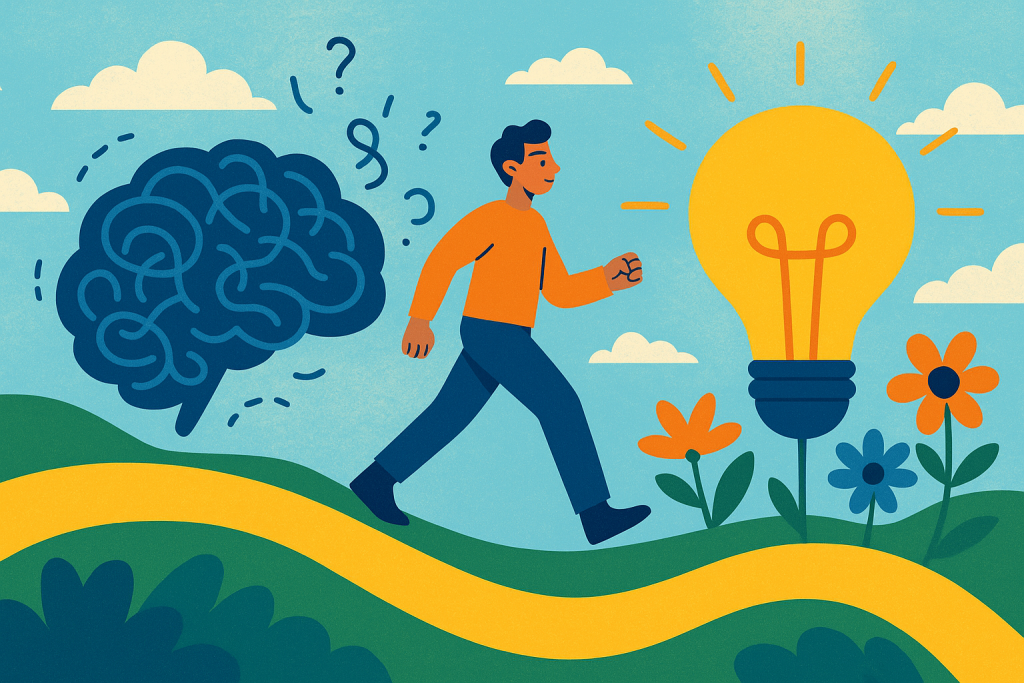In a world where knowledge doubles faster than ever, mastering unlearning is becoming essential for innovation and adaptability. Here’s how letting go of outdated beliefs frees mental space for fresh perspectives and better problem-solving.

What Is Unlearning and Why It Matters
Unlearning refers to the process of deliberately letting go of outdated knowledge, habits, or frameworks that no longer serve us. It’s about creating cognitive flexibility, which allows us to:
- Remove mental barriers.
- Embrace new methods and insights.
- Adapt quickly to changing environments.
Psychologists link unlearning with a growth mindset, which emphasizes the ability to improve and change. Mindset Works highlights that unlearning outdated beliefs is a key part of fostering this mindset in learners and professionals alike (Mindset Works, 2023). And Harvard Business Review underscores that embracing unlearning helps workplace teams avoid stagnation and maintain relevance (Harvard Business Review, 2023).
Why unlearning Fuels Better Thinking
1. Clears Cognitive Bottlenecks
When we cling to old solutions, they clutter our mental space and limit creativity. Letting go frees up neural resources to explore diverse alternatives and novel approaches.
2. Encourages Mental Flexibility
The ability to switch perspectives—and to discard previous ones—is a hallmark of agile thinking. That flexibility leads to improved decision-making under uncertainty.
3. Stimulates Innovation
Unlearning old conventions opens the door to breakthroughs. When you question “this is the way it’s always been done,” you create space for new methods, better tools, and improved outcomes.
Current Trends: Unlearning in Action
A. Tech Industry Shake-Ups
Tech giants like Google and Microsoft have programs encouraging employees to shed assumptions about legacy systems. This empowers teams to develop long-term solutions with fresh thinking.
B. AI and Machine Learning Education
Since AI models evolve rapidly, trainers must unlearn static teaching methods. Psychological research suggests learning new tech demands letting go of old teaching paradigms (Psychology Today, 2024).
C. Digital Detox and Mental Reset
Wellness experts now recommend “digital unlearning”—detaching from habitual media consumption to recalibrate our attention spans and reset mental habits. Retreats with no devices aim to nurture this reset.
The Neuroscience Behind Unlearning
Synaptic Pruning
The brain regularly removes unused synaptic connections, helping it stay efficient. Intentionally making new connections—and discarding old ones—mirrors this natural process.
Neuroplasticity
Neuroplasticity refers to the brain’s capacity to form new networks. Unlearning outdated beliefs supports plasticity by reinforcing alternative neural pathways.
Guide: unlearning to Train Better Thinking
First Step: Identify Your Mental Habits
- List assumptions you rely on at work or in daily life.
- Ask colleagues to highlight blind spots in your habits.
Second Step: Test Outdated Beliefs
- Run small experiments—try new tools or protocols.
- For example: swap Excel workflows for database tools.
Third Step: Dive into Reflective Practice
- Keep a “mistakes diary” documenting outdated practices.
- Use prompts like: “What belief limited my outcome today?”
Fourth Step: Celebrate Unlearning
- Recognize when you’ve challenged a long-held assumption.
- Share unlearning breakthroughs in team meetings or personal journals.
Step 5: Build an Unlearning Habit
- Dedicate monthly time to reviewing processes and tools.
- Rotate through perspectives: ask yourself what could be improved.
Real-World Examples
Case Study: Remote Work Redesign
A company that relied on office-based brainstorming shifted to hybrid collaboration tools like Miro and Figma. By unlearning the assumption that creativity only happens in-person, they improved productivity and engagement across distributed teams.
Case Study: Agile Shift in Finance
A finance firm juggling spreadsheets and email approvals moved to cloud-native decision-making. Their teams had to unlearn ingrained audit trails to adapt to real-time tracking tools—resulting in quicker analyses and reduced bottlenecks.
Measuring the Impact of Unlearning
Innovation Metrics
Track the number of new ideas or patents before and after implementing unlearning workshops.
Speed of Adoption
Measure the time it takes for teams to adopt new tools versus legacy practices.
Qualitative Feedback
Survey team members on perceived barriers before and after unlearning exercises.
Lessons from Psychology
- Growth Mindset Foundation
A growth mindset thrives on questioning status quo and being open to unlearning. As noted by Mindset Works, unlearning supports ongoing development (Mindset Works, 2023). - Cognitive Dissonance as Fuel
When old beliefs clash with new realities, discomfort spurs change. Embrace this tension—it’s the engine of unlearning. - Ritualized Reorientation
Pause after big accomplishments to ask: “What did I assume that no longer applies?” This propels you into relearning territory.
Challenges and Pitfalls
- Identity Resistance
Letting go of long-held expertise can feel like losing a part of identity. Support from peers helps ease this process. - Confirmation Bias Reasserts Itself
Our brains gravitate back to familiar thoughts. Counter this by embedding contrarian viewpoints in discussions. - Organizational Pushback
Some teams cling to hierarchy and legacy systems. Building quick prototypes (MVPs) is one way to show new benefits before unlearning fully kicks in.
Final Thoughts
Unlearning isn’t about forgetting useful skills—it’s about being selective. By choosing what to let go and where to invest mental bandwidth, we become agile, innovative thinkers. With science-backed benefits, and actionable steps, the journey of unlearning can rewire how you approach problems and opportunities in 2025 and beyond.
References
- Mindset Works (2023) The Science of Growth Mindset. Available at: https://www.mindsetworks.com (Accessed: 13 May 2025).
- Harvard Business Review (2023) How to Embrace a Growth Mindset at Work. Available at: https://hbr.org (Accessed: 13 May 2025).
- Psychology Today (2024) Growth Mindset in the Workplace. Available at: https://www.psychologytoday.com (Accessed: 13 May 2025).






